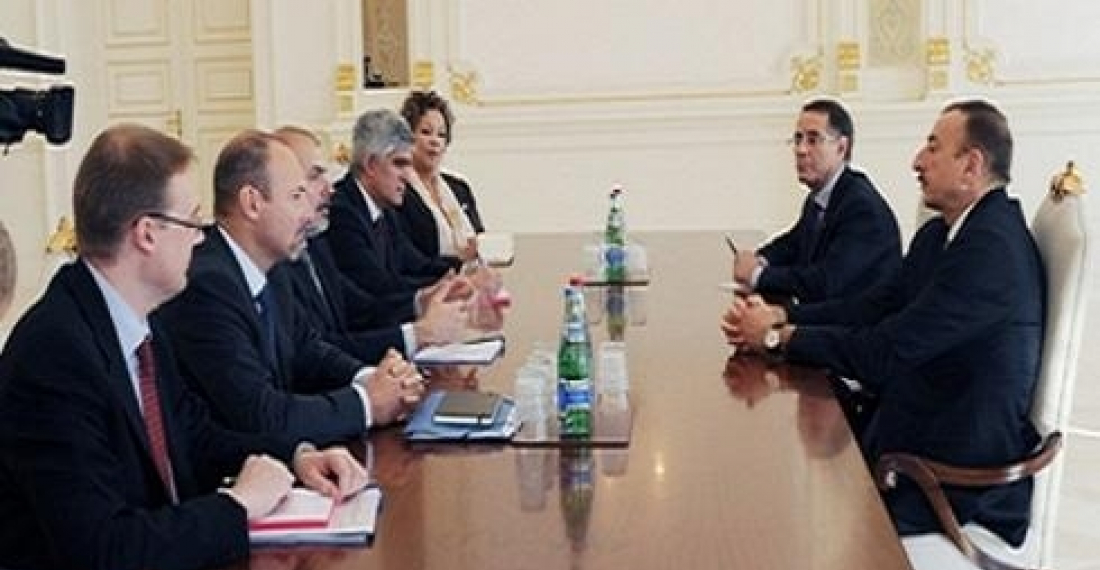The European Union Special Representative for the South Caucasus, Philippe Lefort, yesterday met in Baku with the President of Azerbaijan, Ilham Aliev. The Presidential Press office said that the main focus of the discussions was the Karabakh conflict settlement process and EU-Azerbaijan relations. Lefort was accompanied by the Head of the European Union delegation to Azerbaijan Ambassador Roland Kobia and other officials.
The European envoy is currently in the region for a further round of consultations with the sides involved in the Karabakh conflict. His visit follows shortly after important resolutions adopted by the European Parliament on future relations between the EU and Armenia and Azerbaijan.
source: commonspace.eu
photo: President Aliev of Azerbaijan with the EU delegation headed by the EUSR for the South Caucasus Philippe Lefort in Baku on 25 April 2012 (picture courtesy of the Press Service of the Government of Azerbaijan).







